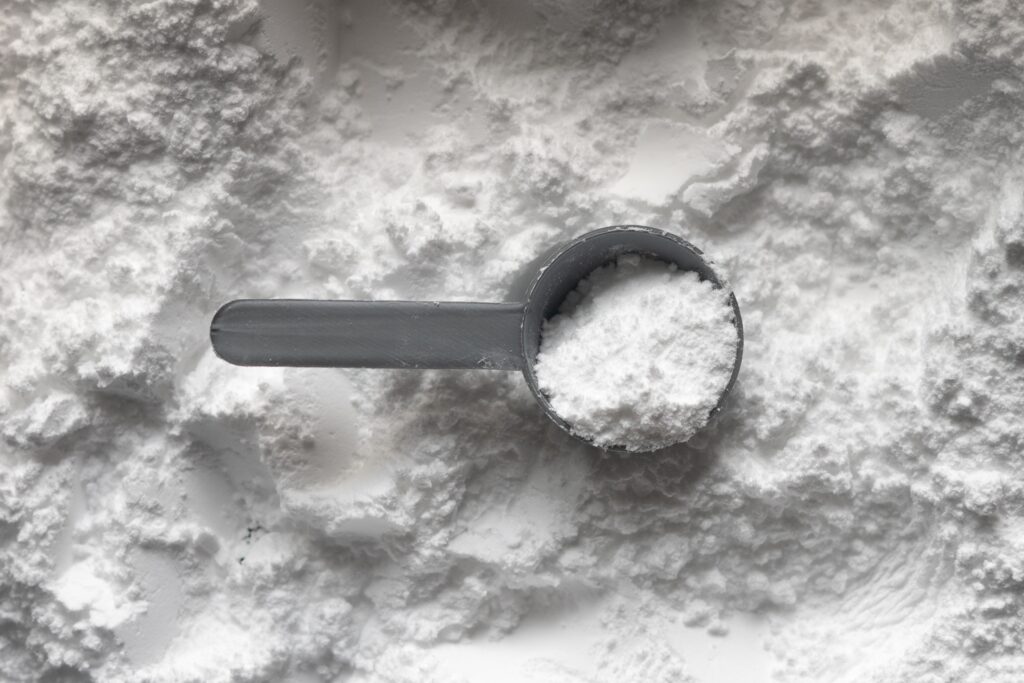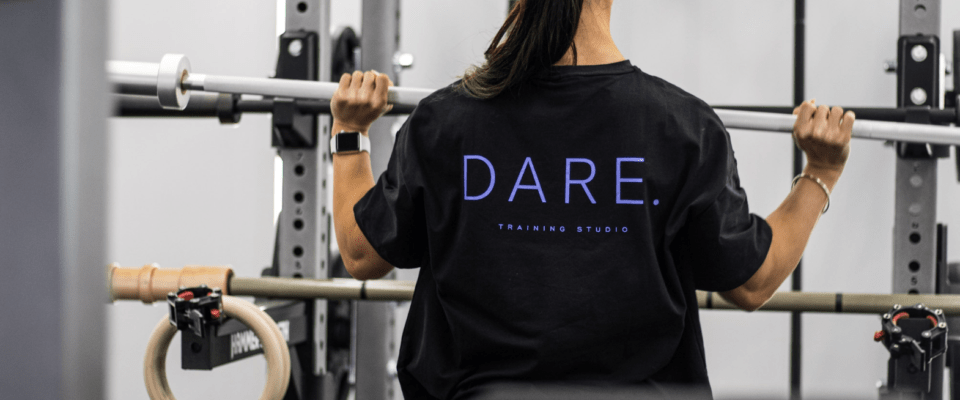Electrolyte drinks: Definition, uses and supplementation
By David OttobreDare MD
Electrolyte drinks have taken the world by storm recently, with the rise of drinks like PRIME making headlines.
But in the world of sports performance, using electrolytes to maintain hydration levels is nothing new. Opting for a clean, natural electrolyte drink is always a good choice, which is why we swear by KTS electrolytes. But why are electrolytes so effective and who should take them?
In this article, we’ll uncover what electrolytes are and why they are essential for hydration, as well as how these drinks work to rehydrate our bodies more effectively than plain water. We’ll also discuss the role of electrolytes in athletic performance and how they boost physical endurance.
So whether you’re an avid sports enthusiast or simply someone interested in understanding the science behind hydration, this article will provide you with valuable insights into the benefits of electrolyte drinks. Let’s quench our thirst for knowledge and unlock the secrets behind these popular beverages.

Why take an electrolyte drink? Understanding electrolytes
Electrolytes are minerals that conduct electricity when dissolved in water. The most common electrolytes in the human body are sodium, potassium, chloride, calcium, magnesium, and phosphate.
You’ve probably heard of these, as they play a crucial role in hydration, fluid balance, regulating muscle contractions, and supporting nerve function.
When we sweat during physical activity, we lose electrolytes along with water. This can disrupt the body’s electrolyte balance, leading to symptoms like muscle cramps, fatigue, and decreased performance. For this reason, replenishing lost electrolytes is essential for maintaining optimal bodily functions, especially during intense exercise.
In addition to physical activity, electrolyte balance is also vital for everyday bodily functions such as maintaining blood pressure, supporting hydration, and facilitating nerve impulses.
How electrolyte drinks aid physical performance
Hydration is a critical factor in determining physical performance, especially during exercise and sports activities. Proper hydration ensures that the body can function optimally, supporting temperature regulation, nutrient transport, and joint lubrication.
Dehydration, which occurs when the body loses more fluids than it takes in, can lead to not only decreased athletic performance but an array of health complications too. When we are dehydrated, we face an increased risk of heat-related illnesses, and impaired cognitive function as well as added stress on the cardiovascular system.
This is where electrolyte drinks come in to help us absorb and retain fluids. Electrolyte drinks facilitate the absorption of water in the intestines and promote fluid retention within the body’s cells. This allows our cells to become more hydrated than if we drink plain water alone.
What happens when your body is low on electrolytes?
Dehydration, fatigue and cramps are common when your body is low on electrolytes.
These impacts can have an effect on vital body systems. In extreme cases, severe electrolyte imbalances can cause serious problems such as coma, seizures, and cardiac arrest.
What are electrolyte drinks and how do they work?
Electrolyte drinks, also known as sports drinks or rehydration beverages, are specially formulated drinks designed to replenish electrolytes and fluids lost during physical activity. These drinks typically contain a combination of electrolytes such as sodium, potassium, and magnesium, along with carbohydrates and water. In some cases, electrolyte drinks will also be pumped with sugar, sweeteners and preservatives to make them taste like a soft drink. These kinds of electrolyte drinks are to be avoided.
What electrolytes do to your body
The primary purpose of electrolyte drinks is to restore the body’s electrolyte balance and promote rapid rehydration. When consumed, the electrolytes in these drinks help enhance fluid absorption for rehydration after a workout, when faced with extreme heat or after a bout of sickness.
Many sports drinks also contain carbohydrates, which serve as a source of energy to fuel working muscles and replenish glycogen stores. The combination of electrolytes, carbohydrates, and fluids in these drinks is aimed at supporting overall hydration, energy levels, and physical performance.
For everyday use, an electrolyte powder that can be added to any drink is recommended. Options like KTS electrolytes are a clean alternative to the standard energy drinks on the market that can contain high carbs and sugar which is not ideal for day to day use.
Electrolyte drink ingredients and their benefits
The key ingredients in electrolyte drinks contribute to their effectiveness in promoting hydration and supporting athletic performance.
What are the 3 main electrolytes?
- Sodium: Plays a crucial role in maintaining fluid balance and enhancing the absorption of water in the body.
- Potassium: helps regulate muscle contractions and supports proper nerve function.
- Magnesium: Prevents muscle cramps, promotes efficient muscle function, and aids nervous system recovery.
Plus
- Phosphorus, chlorides, bicarbonates and sulphate can also be added to aid electrolyte balance.
Electrolyte drink vs. water: Which is better for hydration?
The debate between electrolyte drinks and water for hydration purposes has been a topic of discussion among athletes and fitness enthusiasts. While both options have their benefits, the choice between the two largely depends on the individual’s hydration needs, activity level, and environmental conditions.
Water is essential for maintaining overall hydration and is suitable for low to moderate-intensity activities that last less than an hour. However, during prolonged or intense exercise, especially in hot and humid environments, electrolyte drinks offer distinct advantages due to their ability to replenish lost electrolytes and provide additional energy sources.
Electrolyte drinks are particularly beneficial for individuals engaging in endurance sports, high-intensity training, or activities that result in significant fluid and electrolyte loss. The combination of electrolytes, carbohydrates, and fluids in these beverages can help sustain performance, prevent dehydration-related issues, and support recovery post-exercise.
Ultimately, the choice between water and electrolyte drinks depends on the specific hydration needs and activity demands of the individual. Both options play a valuable role in maintaining proper fluid balance and supporting physical performance, and their suitability can vary based on the context in which they are consumed.
When to use electrolyte drinks for optimal performance
Determining the ideal timing for consuming electrolyte drinks can impact their effectiveness. The timing of electrolyte drink consumption should align with the individual’s activity level, duration, and sweat rate, as well as the environmental conditions in which the activity takes place.
Before Exercise: Consuming electrolyte drinks before exercise, especially in situations where significant fluid and electrolyte loss is anticipated, can help prime the body for optimal performance. Pre-hydration with electrolytes can support fluid retention and ensure that the body starts the activity with adequate electrolyte reserves.
During Exercise: For prolonged or intense exercise lasting longer than an hour, consuming electrolyte drinks during the activity can help maintain electrolyte balance, replace lost fluids, and provide a source of energy to sustain performance. Regular consumption of these drinks during endurance activities can aid in preventing dehydration and optimising physical output.
After Exercise: Post-exercise rehydration is essential for replenishing fluid and electrolyte losses and promoting recovery. Consuming electrolyte drinks after exercise can support the restoration of electrolyte balance, aid in muscle recovery, and facilitate overall hydration, especially in situations where sweat loss is significant.
Ultimately, the timing and frequency of electrolyte drink consumption should be tailored to the individual’s specific needs and the demands of their physical activity. By strategically incorporating electrolyte drinks into their hydration and nutrition plan, individuals can maximise their performance and recovery outcomes.
Making your own electrolyte drinks at home
For those who prefer a DIY approach, creating homemade electrolyte drinks can be a cost-effective and customizable alternative to commercial options. Making electrolyte drinks at home allows individuals to tailor the ingredients to their preferences and ensure that the beverages align with their specific hydration and performance needs.
Basic Recipe: A simple homemade electrolyte drink can be made by combining water, a source of sodium (such as table salt or sea salt), a source of potassium (such as potassium chloride or coconut water), and a natural sweetener (such as honey or agave nectar). This basic recipe provides essential electrolytes and can be customised with additional ingredients to suit individual tastes.
Electrolyte drink Australia: Where to buy
There is a broad range of commercially available electrolyte drinks, each with a unique formulation and targeted benefits. When selecting an electrolyte drink, it’s essential to consider factors such as electrolyte content, carbohydrate concentration, flavour options, and suitability for specific activities.
We recommend KTS electrolytes which comes in powder form and allows you to add electrolytes to your drinks without any added carbs or sugars which can have hidden calories.
Electrolyte powder vs electrolyte drink
Powder benefits:
- Can be added to any drink
- Much more cost effective
- Tends to be cleaner
- Tends to have less sugar and carbohydrates
- Dissolves easily on the go
Electrolyte drink benefits:
- Convenient
- Tasty
- Often contain carbs to replace glycogen stores
Electrolyte drink myths debunked
Myth: Electrolyte drinks are only for professional athletes and intense workouts.
Debunked: While electrolyte drinks are commonly used by athletes, they can benefit individuals engaging in various physical activities, including recreational sports, fitness classes, and outdoor adventures.
Myth: All electrolyte drinks are high in sugar and artificial ingredients.
Debunked: Many electrolyte drinks offer low-sugar or sugar-free options, as well as formulations with natural flavours and clean ingredients, catering to individuals seeking healthier hydration choices.
Myth: Electrolyte drinks are only necessary in hot weather.
Debunked: Electrolyte drinks are beneficial in diverse environmental conditions, including cold climates and indoor workouts, as they support hydration, electrolyte balance, and energy levels irrespective of external temperatures.
Myth: Drinking plain water is sufficient for hydration, and electrolyte drinks are unnecessary.
Debunked: While water is essential for hydration, electrolyte drinks offer additional benefits by replenishing lost electrolytes and providing a source of energy to support performance. If you feel like you’re always thirsty even though you drink a lot, your electrolyte balance could be off.
Maximise hydration and performance with electrolyte drinks
Whether through commercial options or homemade recipes, electrolyte drinks offer a valuable means of optimising hydration, preventing dehydration-related issues, and sustaining energy levels during physical activity. By leveraging the scientific principles behind electrolyte balance and fluid retention, individuals can unlock the potential of these beverages to support their overall well-being and performance goals.
Want to learn more? Contact us today.
